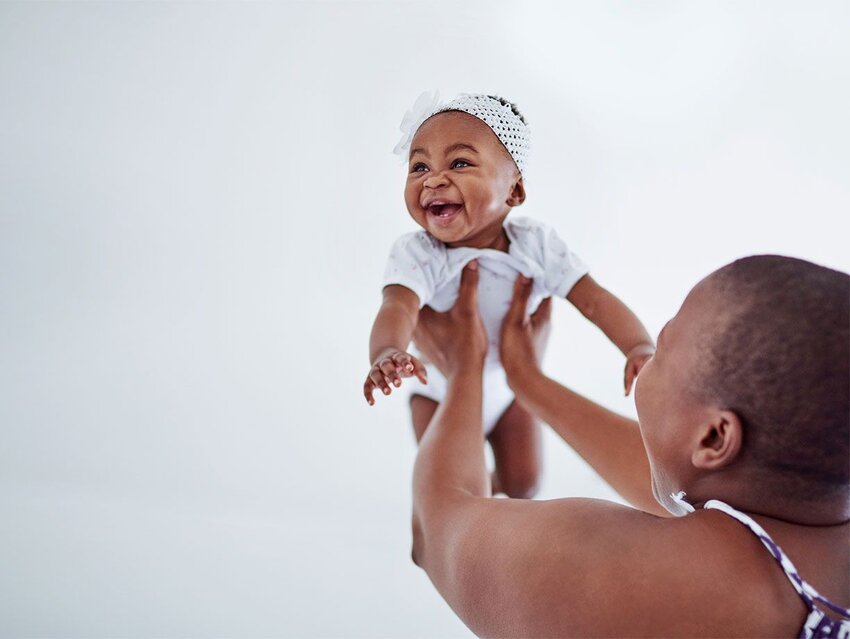For many new parents, it’s awe inspiring when their little one achieves a first, especially speaking their first words. Most children start saying their first coherent words when they’re about one year old. Parents will have to wait until they’re 18 months to two years old for sentences, but even singular words are worth celebrating. Despite different languages and cultures, there are several words that are the most common for babies to say first. What makes these words likely to be a baby’s first? Read on to learn the linguistic backstory behind how young children develop language skills.
Common First Words
Perhaps it’s no surprise that, in many languages, children’s first words relate to caregivers. “Mama” and “dada” (and similar variations) are the two most common utterances from babies. However, when a child first starts using these words, they may not mean them literally. A child may say “mama” when they want food or comfort.
“Mama” starts with a labial consonant (m) — it requires both lips to make the sound. As one linguist discovered, babies are likely to make this sound when breast or bottle feeding. “Mama” may be a common first word because it is a familiar mouth construction.
“Dada” follows a similar pattern. The “d” in “dada” is a dental consonant, which is when the tongue pushes against the upper teeth (“t” and “n” are also dental consonants). It’s also likely to be one of the first words a baby speaks because it doesn’t require learning how to push air out through their nose.
Other languages have similar words for both caregivers that are easy for young ones to say. Spanish has mama while Italian has papà. In Hebrew, young children’s first words may be aba or ima. Notice how many of these words have repetitive sounds? This repetition is what makes these words “baby talk.”
The other most common words children are likely to use are ones that they hear often — “uh oh” or “no” are also common refrains for little ones.
Small Mouth Sounds
Words with repetitive sounds are more likely to be used by caregivers when speaking to young children. Many of us turn everyday words into baby talk habitually when talking to babies and toddlers. “Car” might turn into “beep beep” or “vroom vroom.” Repetition and simplicity are both key when talking to babies. Research suggests that using words with repetitive sounds may help toddlers develop bigger vocabularies. There are other benefits to baby talk, also called caretaker talk, or child-directed speech. The stretched-out words and speech patterns paired with higher pitch tones can help babies better understand the different parts of language.
If you’re waiting for your baby to start speaking, try some repetitive language and encourage that first “mama” or “dada.”
Featured image credit: LaylaBird/ iStock

